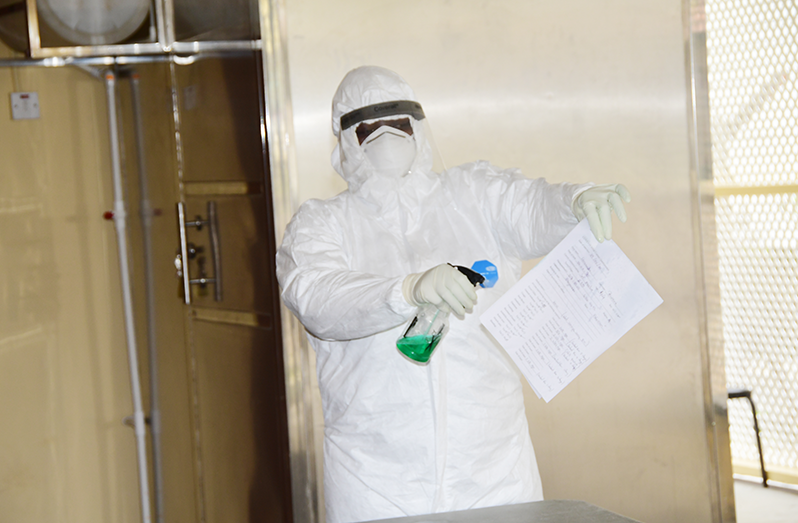WITH a population of 39,992 according to the country’s 2012 count, one in every 17 persons in Region 10 (Upper Demerara-Berbice) have now tested positive for the deadly COVID-19 virus.
This means nearly six per cent of the overall number of persons in the Region have tested positive for COVID-19, according to data provided by the Ministry of Health on Sunday last.
Health Minister, Dr Frank Anthony, during his COVID-19 briefing, maintained that where COVID-19 vaccination numbers were high, cases and deaths were low.
“In the areas where we have a lot of people [who] still remain unvaccinated, unfortunately, we are going to have more cases. And some of those cases are going to be severe and will require hospitalisation,” Dr Anthony said in late November.
The World Health Organisation (WHO) had set a global target for governments to vaccinate 40 per cent of their populations by December 2021. Guyana has surpassed that target, vaccinating 56 per cent of our population against the deadly pandemic.
Vaccination numbers in Region 10, however, remain low.
In August, the Health Minister reported: “Region 10 has the lowest numbers for first dose vaccines… we have just completed about 5,693 vaccines [which are] first dose”.
The Minister was concerned that there are also persons in the Region who might have flu-like symptoms but do not take COVID-19 tests which resulted in lower testing for COVID-19 in the region.
“We know with COVID there might be people who are asymptomatic, so if you don’t do tests, you wouldn’t know whether you are positive or not,” Dr Anthony related.
The Health Minister had cause to call out what he considered politicisation of the pandemic in the region, which was contributing to vaccine hesitancy.
It was observed that residents in Region 10 supported a lockdown call by regional leaders in early September to protest government’s COVID-19 emergency measures.
Jermaine Figueira, parliamentary representative of the region and a member of the political opposition, was quoted in the media referring to the government’s vaccination policy as “coercive”, a position supported by the region’s Chairman, Deron Adams.
Just a few months prior, in June, the region’s Vice-Chairman, Douglas Gittens, died from COVID-19. Gittens had supported the need for persons to get vaccinated, repeating this call one month before his death.
With the threat of the Omicron variant looming, Guyana has ‘upped’ its recommendation for citizens to get booster shots for COVID-19.
This recommendation comes based on the growing scientific evidence that two-dose vaccines start to lose their effectiveness after six months, and after two months for one-dose vaccines like the Janssen (Johnson & Johnson) vaccine.
With the Christmas season likely to mean increased gatherings, the Health Minister urged, in a recent COVID-19 briefing, persons to ensure they are in well-ventilated areas and that gatherings are limited to small numbers.
For the Omicron variant which is currently increasing steadily in the global north, Dr Anthony cautioned: “It’s not only by droplets but this virus spreads by aerosols which means particles still remain suspended in the air you’re breathing for a much longer time. So somebody could have been there that got the virus, sneeze or something, and that remains suspended in the air”.



.jpg)








